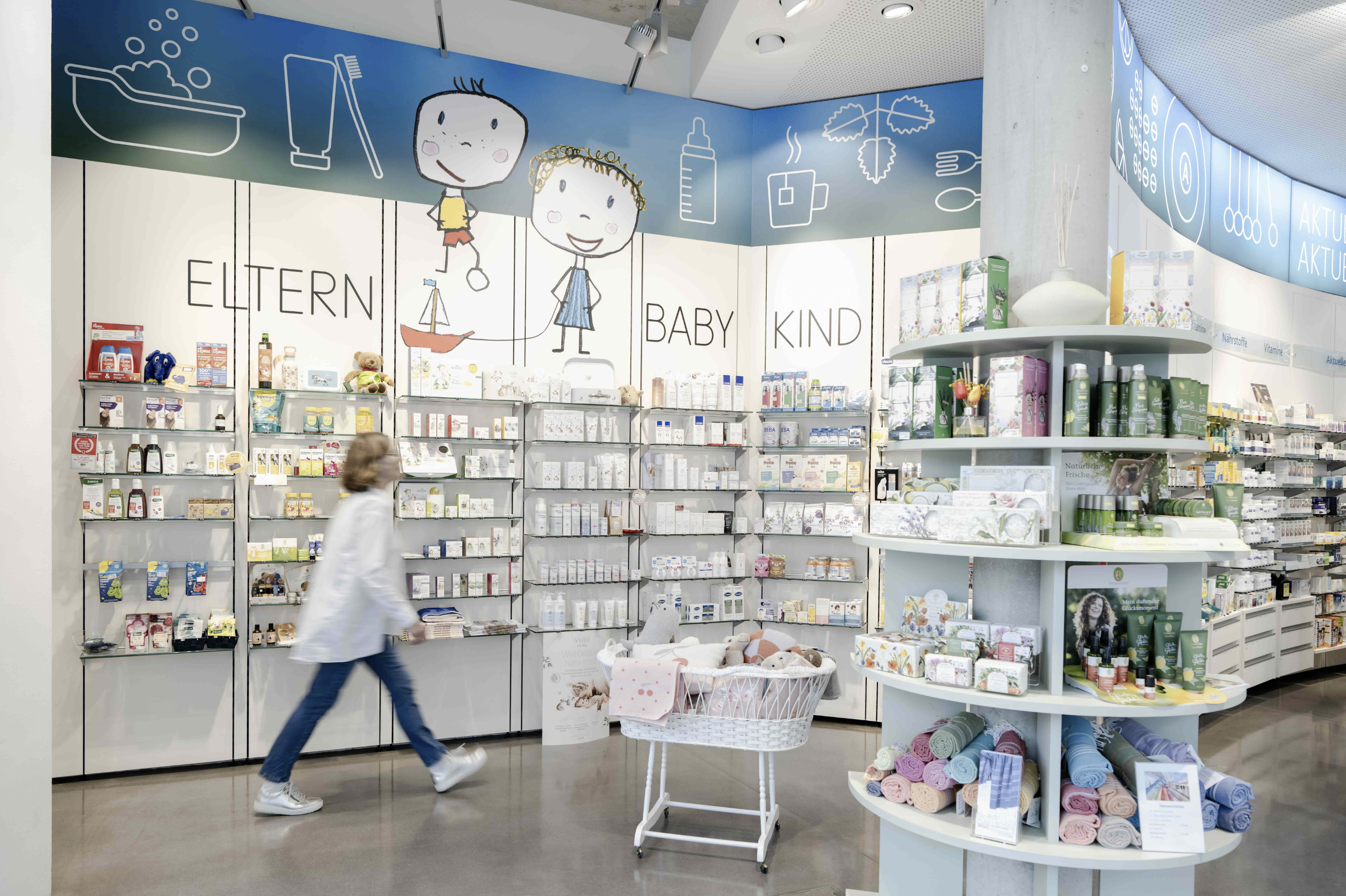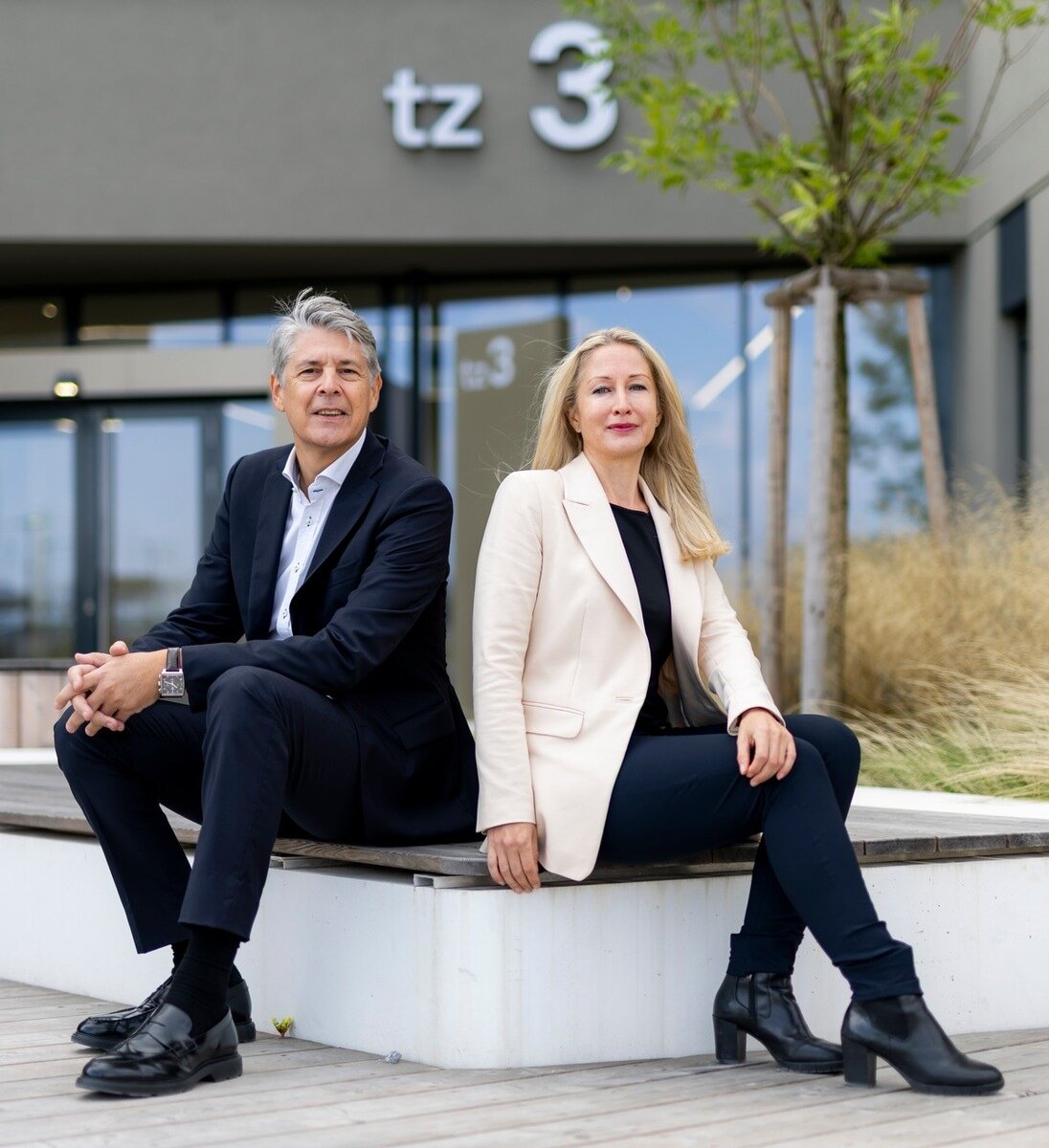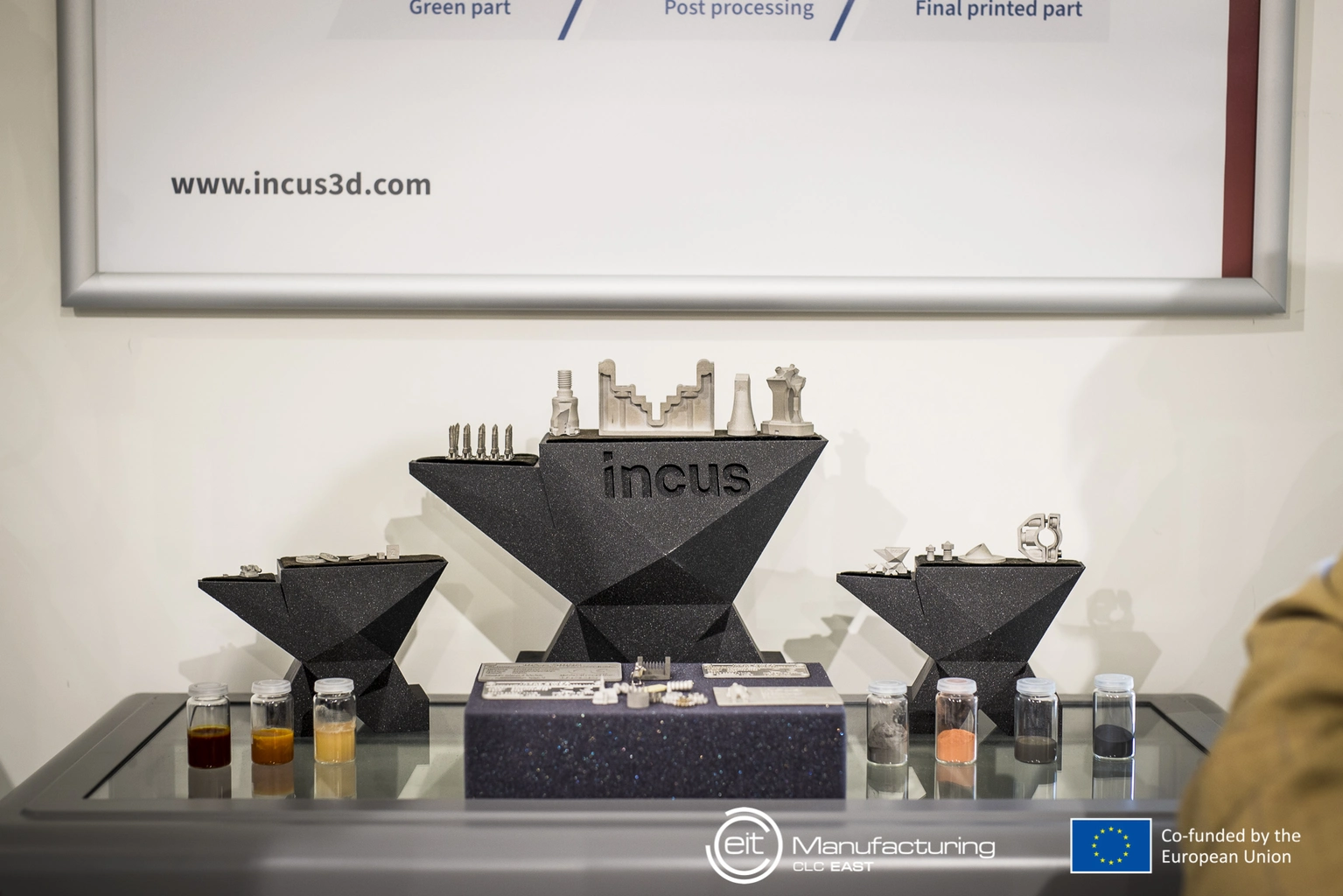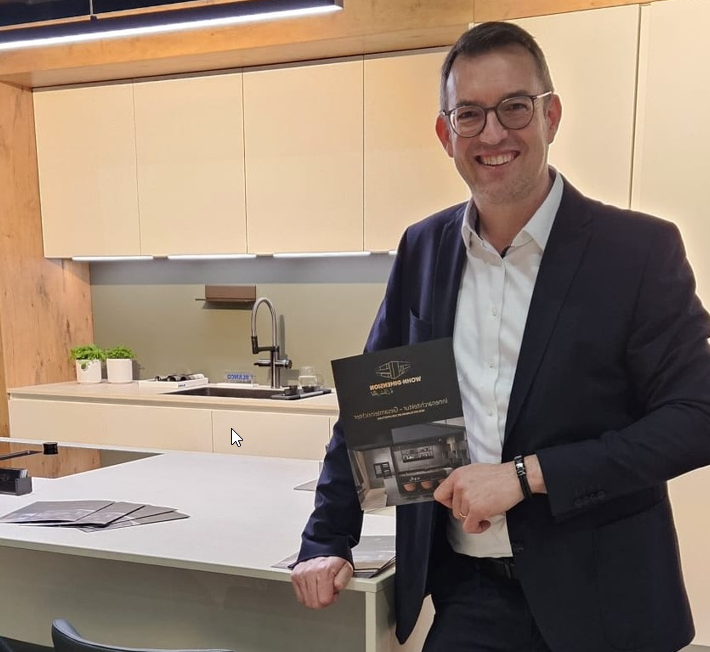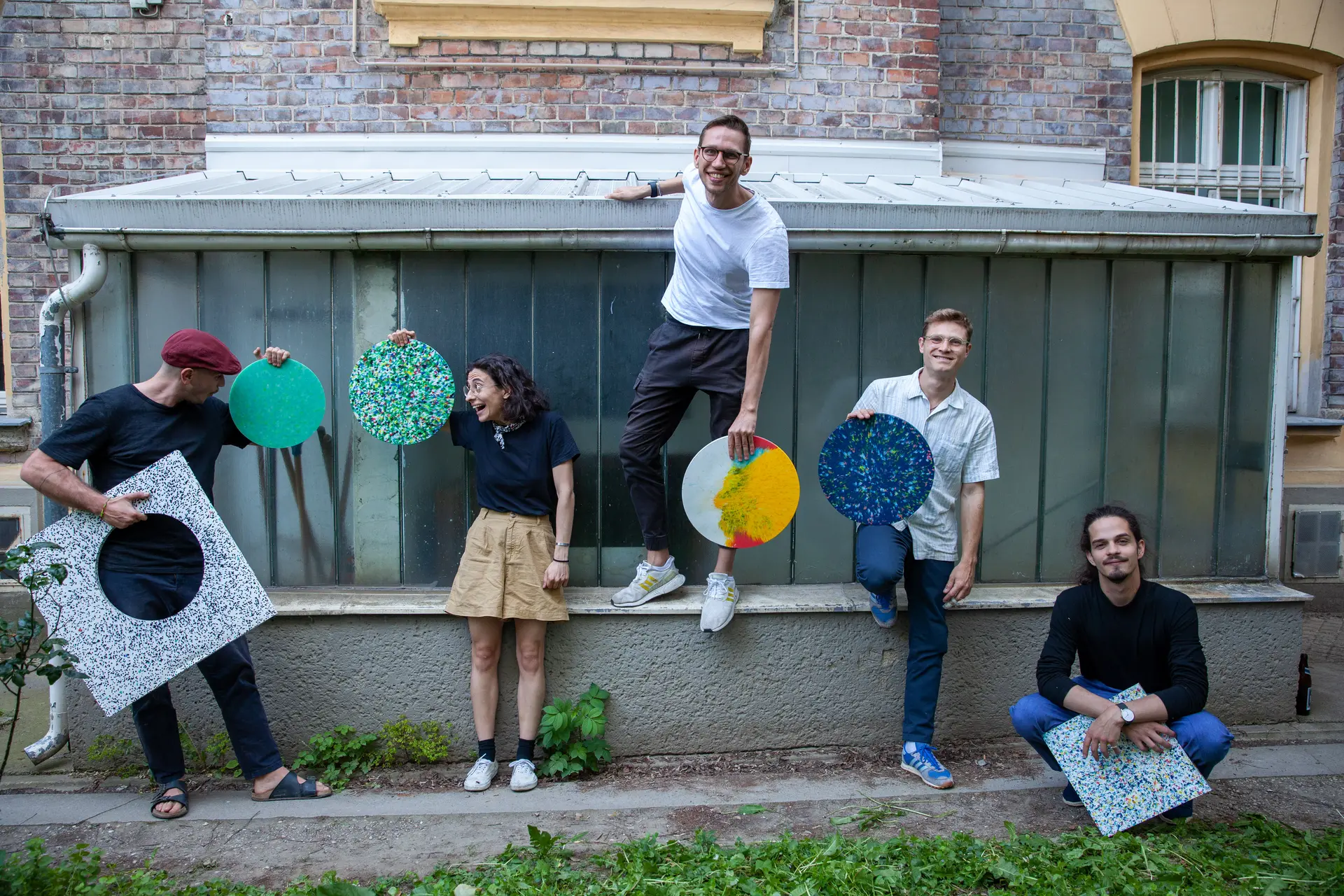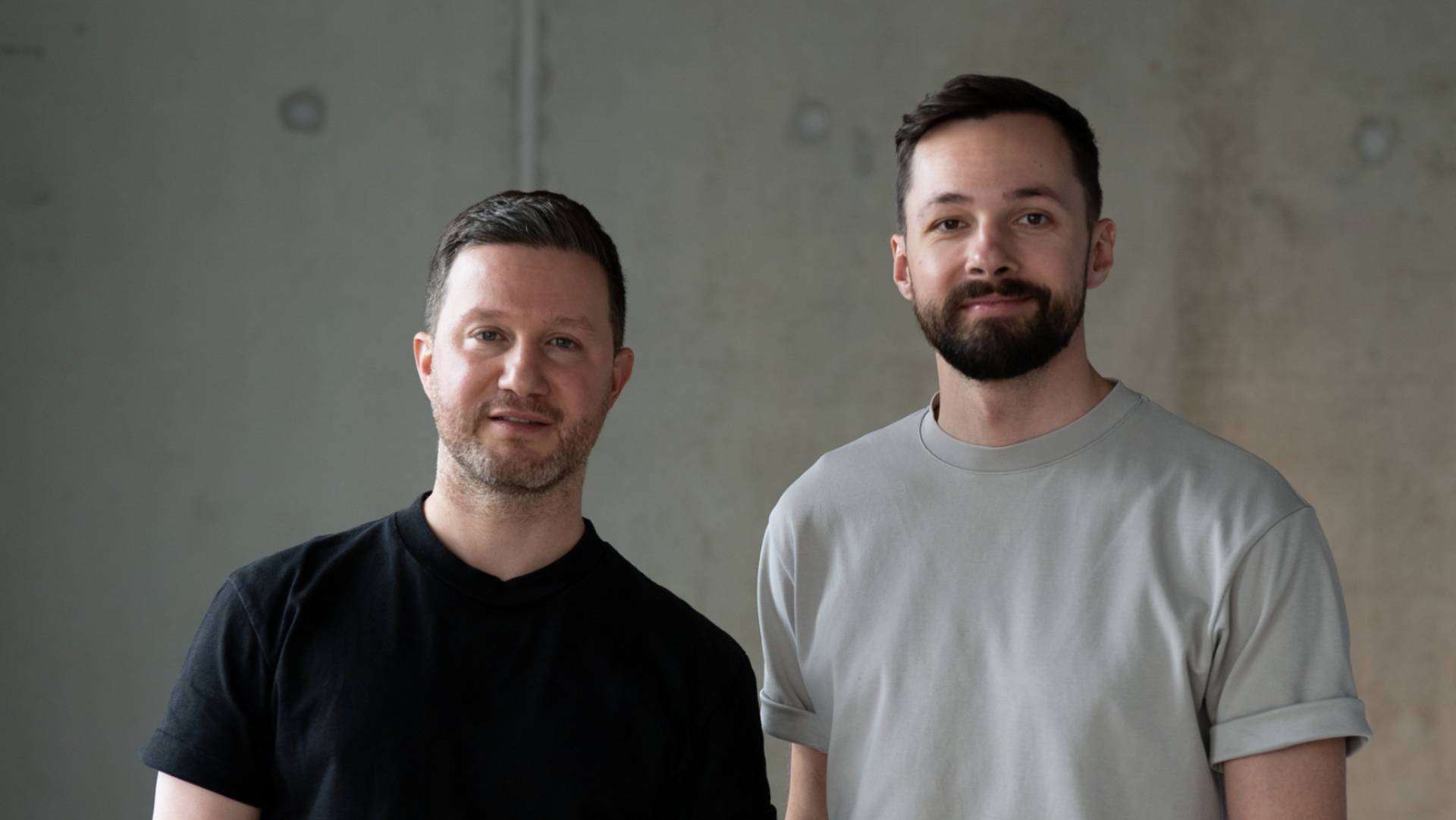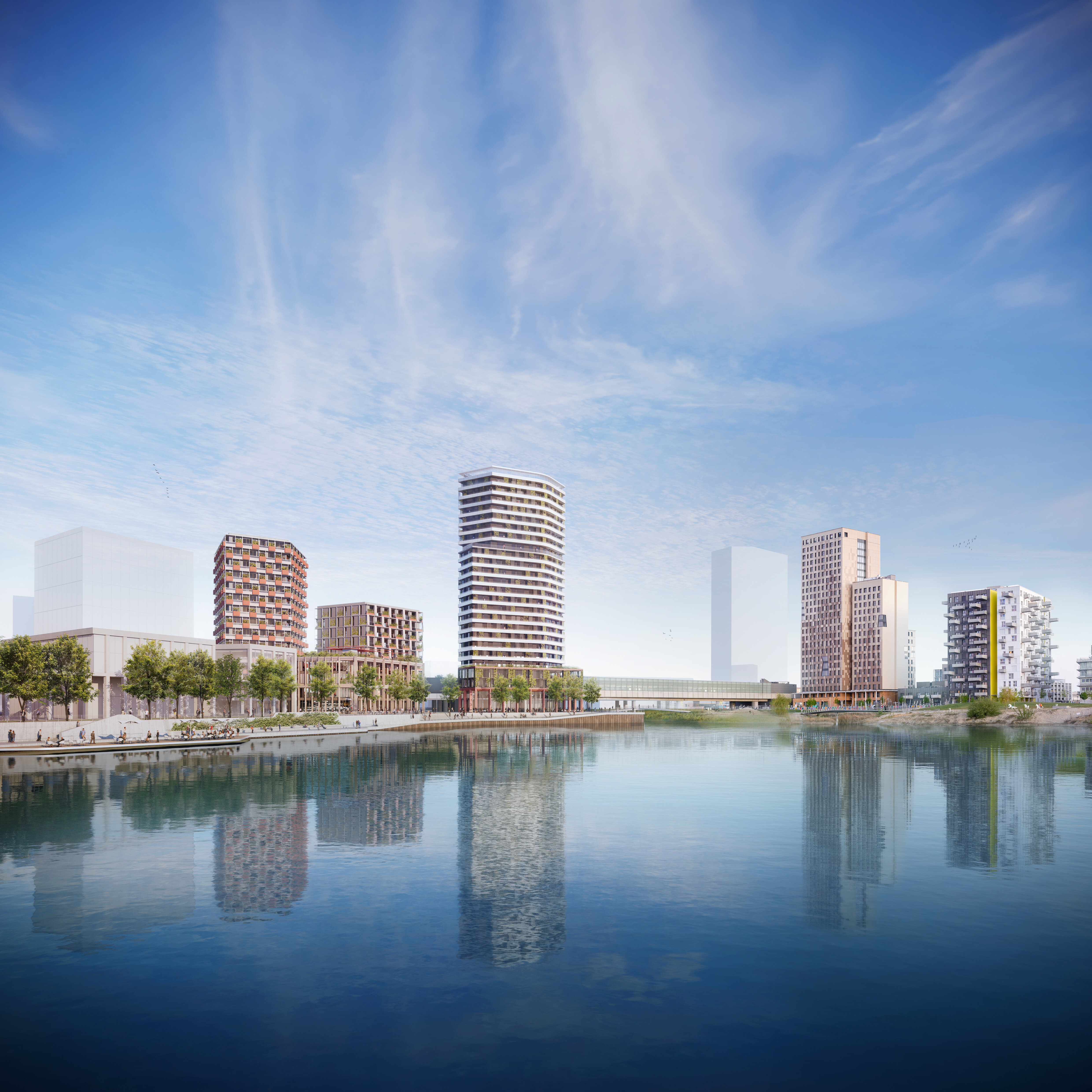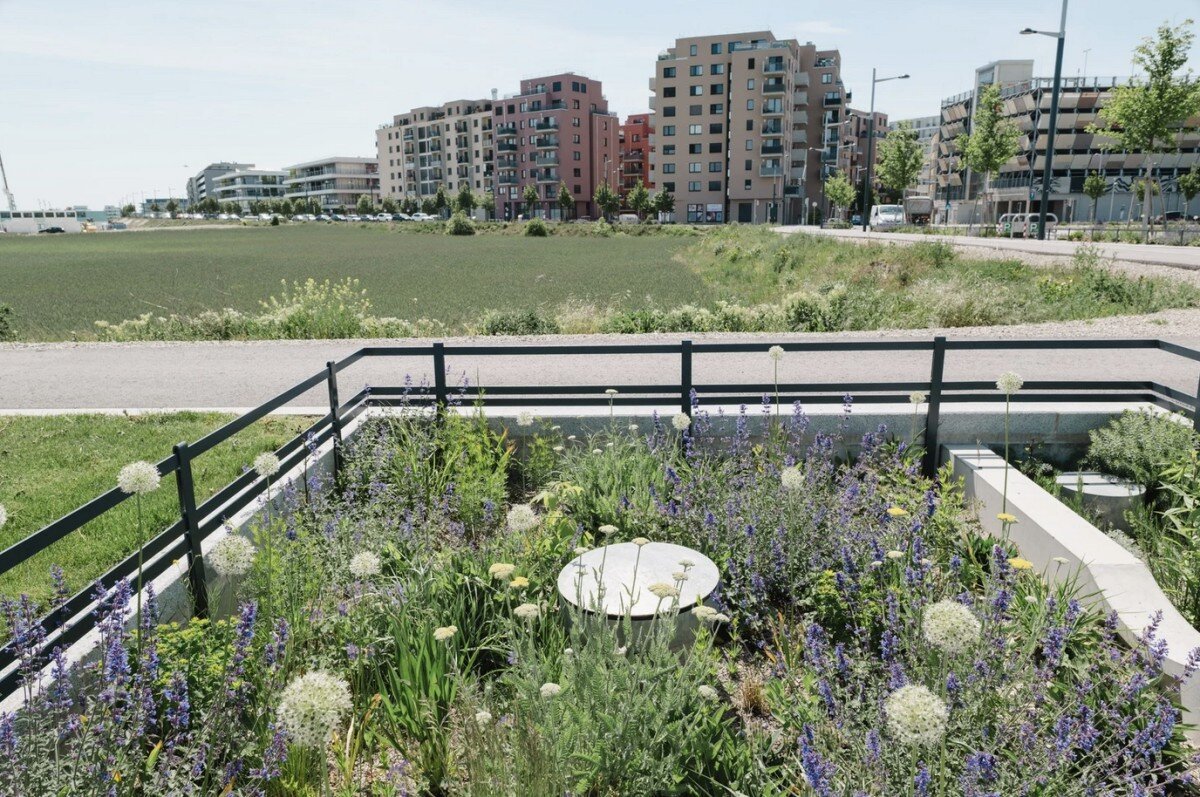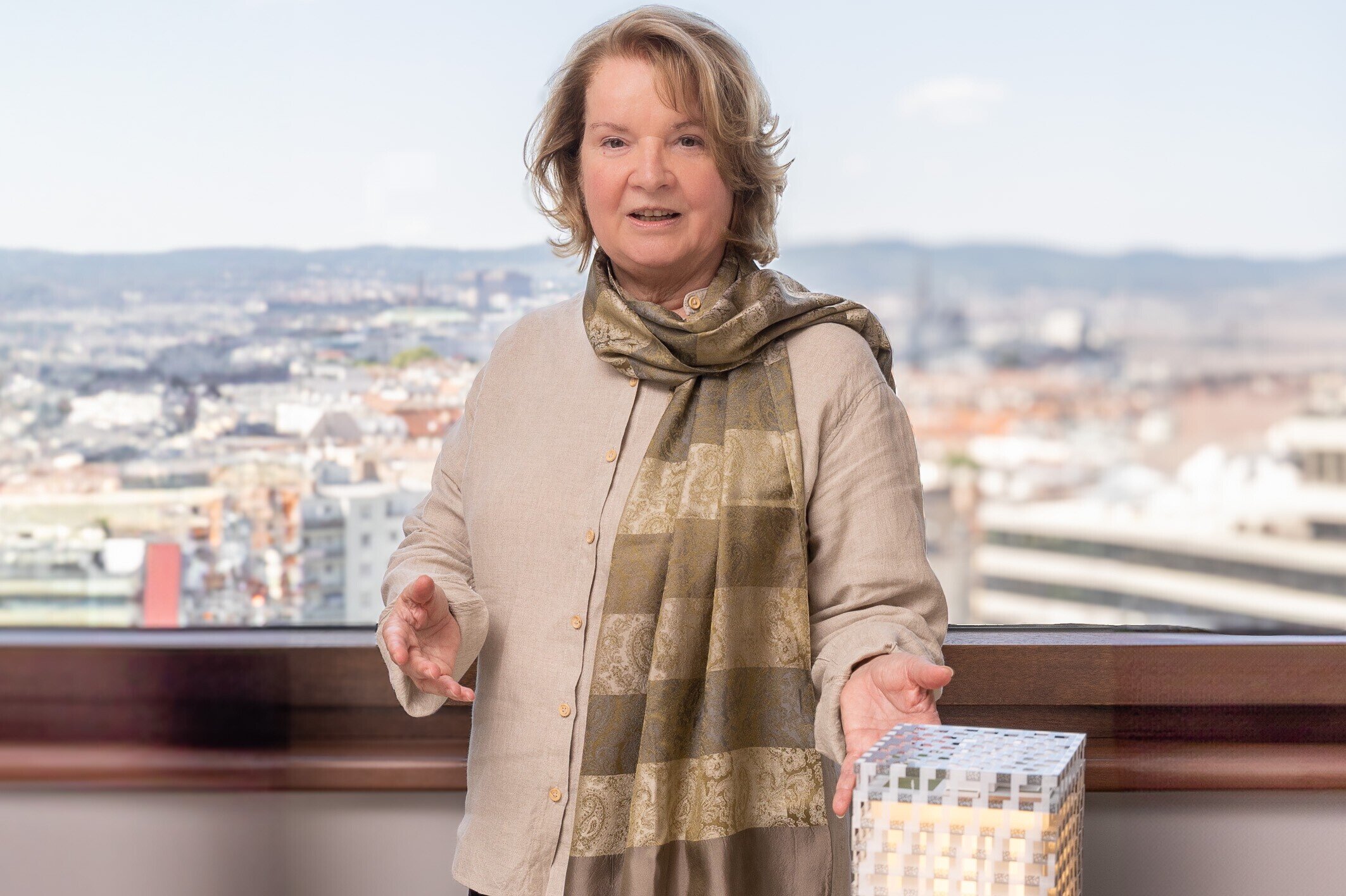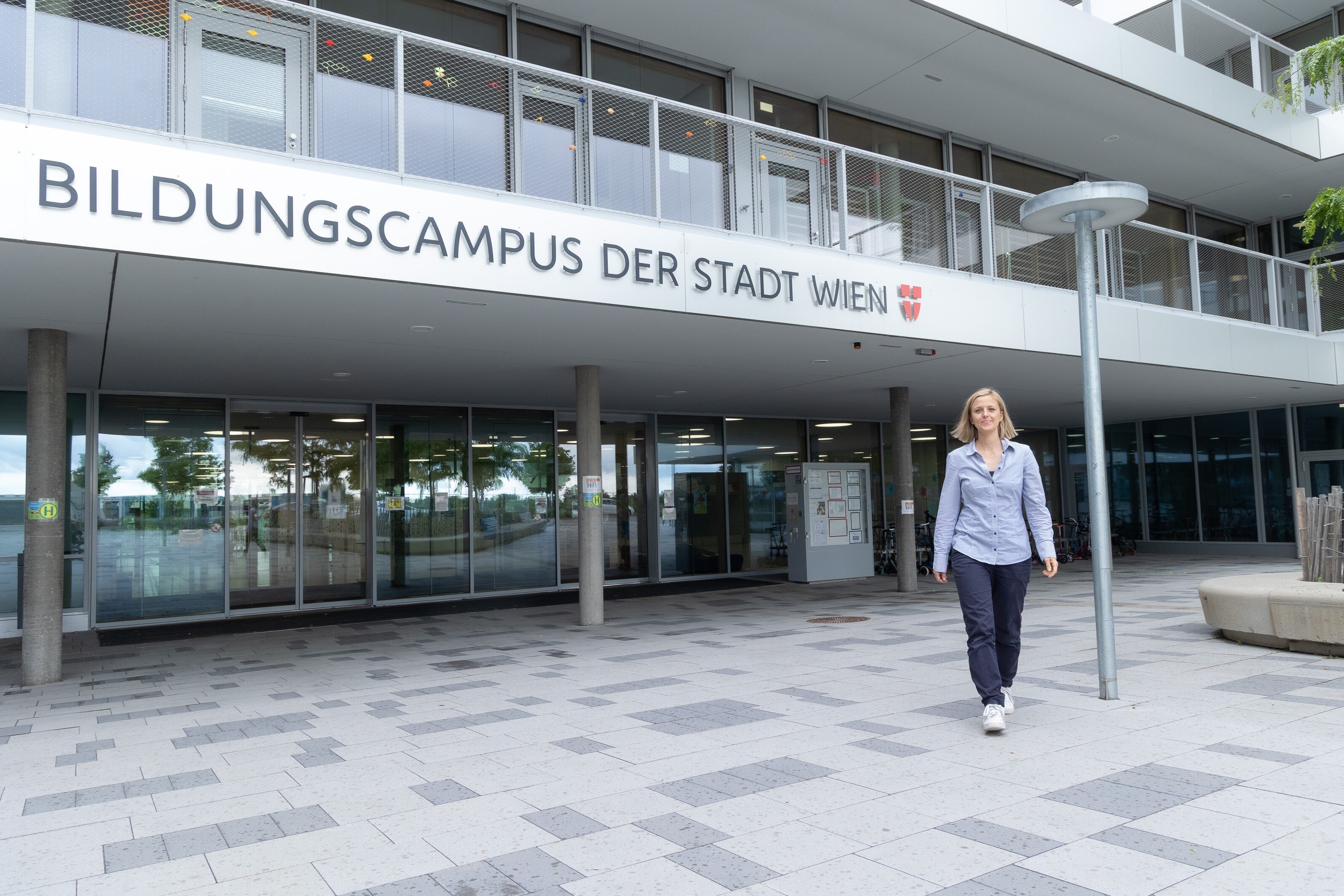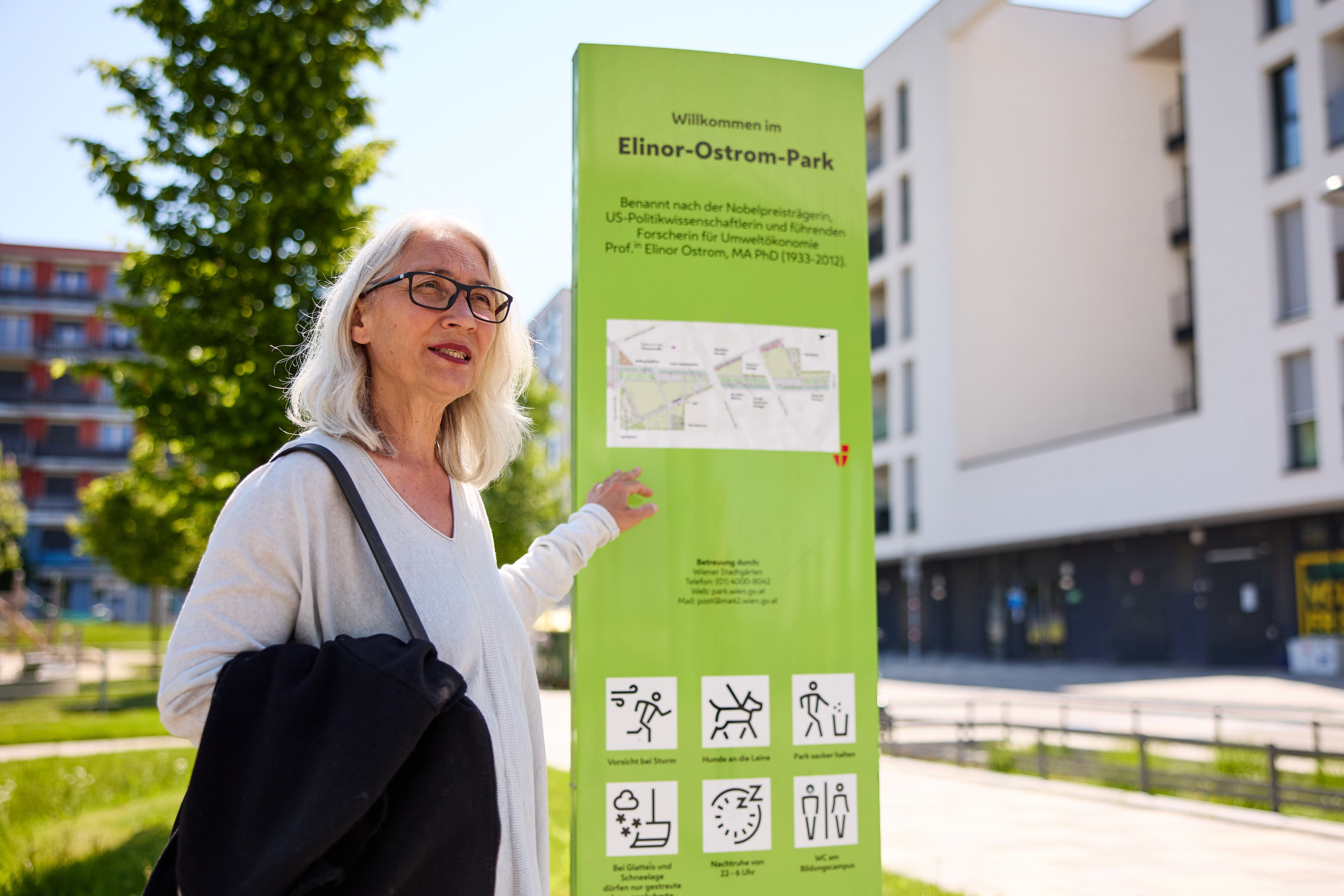Since 2003, Sylvia Schlagintweit has been involved in her association Denkraum Donaustadt with cultural and educational projects at the Löwen von Aspern pharmacy. Teaching health topics to children through workshops is one of the long-standing successful projects. Since 2015, the Schlagintweit couple, together with partners, have been running a new pharmacy in Seestadt, where their commitment to children and families continues.
Author
Gerald Pohl
Published on 09.07.2025
From the business magazine "Workflow"
2025 Inner:City
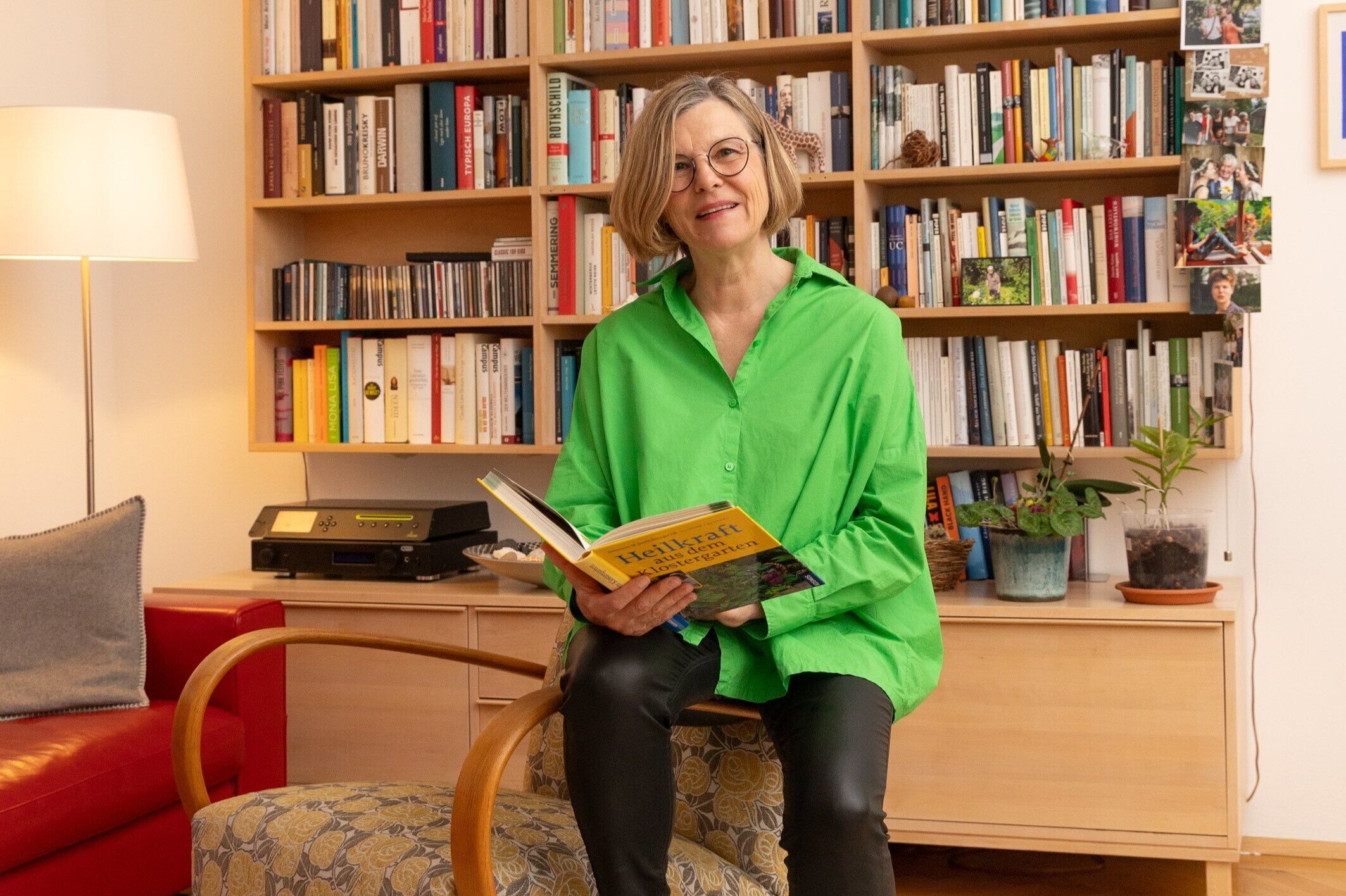
Into the Deep End
She gained the necessary skills as a training manager at an IT training center and as a teacher of German and French. “At the time, my husband was a salaried pharmacist who wanted to become self-employed with his own pharmacy,” Schlagintweit recalls a decisive turning point in her life. In 2003, the ‘Apotheke zum Löwen von Aspern’ was taken over in Aspern, an old building with stairs and a tiny salesroom—in short: anything but accessible. Soon after, Wilhelm Schlagintweit, together with the ARTEC architectural team, built a spectacular new pharmacy. The transparent building with a large seminar room has since been arranged around an atrium with a ginkgo tree. A medicinal herb garden was also integrated. “The monastery garden of the Hessian Abbey of Seligenstadt served as a model. For more than 20 years, workshops have been held there for children and young people to raise awareness about health,” explains Schlagintweit. “With the ‘Medicinal Herb Workshop for Young Researchers’ program, we engage in a dialogue with the children by guiding them through the pharmacy and the herb garden, mixing ointments, and making herbal teas.”
Ten years ago, a second pharmacy was added as one of the first shops in Seestadt. Sylvia Schlagintweit took on the task of setting up the pharmacy in a community building from scratch. “That’s when I jumped in at the deep end,” she admits frankly. There, too, the range of medicines was soon complemented by culture. “The community building has a lecture hall where, among other things, we organized readings with the Seeseiten bookstore,” says Schlagintweit.
Originally from Steyr, Sylvia Schlagintweit studied ethnology and French in Vienna after a year abroad in Paris, before first coming into contact with art. Her first job took her to the props department of Vereinigte Bühnen Wien. But what would culture be without the right mediation.
Culture. In her pharmacy, Sylvia Schlagintweit complements the range of medicines with culture-creative pharmacy projects and workshops for children. © Luiza Puiu
About the Person
Innovative
At the same time, Catherine Chuchylina and her father founded a company that develops and distributes IT-based digital health products worldwide. The family already owned a medical and IT technology company in their home country, Ukraine. 800 hospitals with around nine million patients were among the users. Due to the Russian invasion of Donbass in 2014, it was decided to relocate the company to another country. Austria was chosen after the business agency promised its support. “Many countries were considered, including the USA,” says Chuchylina. “But we chose Vienna because public support here aligns well with our vision.” In 2018, SK Telemed launched its first telemedicine products, and export activities also began that year. The young company took part in trade fairs, explained the benefits of its devices, and acquired distribution partners. Chuchylina: “Our core competence is IT for healthcare, and from that we have developed various systems. After all, it is especially important for doctors to obtain objective data about their patients.” Today, around 30 employees work for SK Telemed online and on site at the Seestadt business park.
Basic Medical Interest
“Especially for those who find it difficult to reach a hospital in an emergency in time. We make this possible through remote diagnosis using digital health applications,” explains Chuchylina. She describes the activities that help change a patient’s life as meaningful moments in her work: “Although I never meet these patients in person, because I might be 1,000 kilometers away, what I do still has an impact.” Chuchylina: “When I see what is possible, I have to advocate for it. That motivates me to find a way and follow it.” She tells the story of a pregnant woman from the Ivory Coast in West Africa who would never have had the chance to have a child without the ultrasound recording implemented in an IT product for telemedicine by SK Telemed. “The examinations and diagnoses were carried out 500 kilometers away in the capital Yamoussoukro.” Or of a member of an indigenous tribe in the Brazilian rainforest who, for the first time, had an ECG taken on site and then received professional medical treatment. The nearest hospital would have been too far away.
Like many technical professions, medical technology is a male-dominated field. However, Chuchylina did not find it difficult to assert herself: “I am very grateful to my parents for giving me a good education and for helping me develop strong self-confidence, so I never underestimated myself. Internationally, I am treated the same as my male colleagues.” She has another piece of advice for female founders: “You can achieve more than you think. Even if it is sometimes challenging: Stay determined on your path, and you will succeed.”
In Ukraine, over 3,000 portable Telehealth Kits from SK Telemed are in use. They help people in war zones, in evacuation centers, or where healthcare and infrastructure have been destroyed. In all this hardship, they enable rapid diagnosis and treatment.
Chuchylina comes from a family of doctors. She herself holds a doctorate, a university degree in sociology and international business, while her father has the necessary medical qualifications as a doctor and a master’s in health management. What unites them is the desire to provide access to the best possible medical care and to improve people’s quality of life.
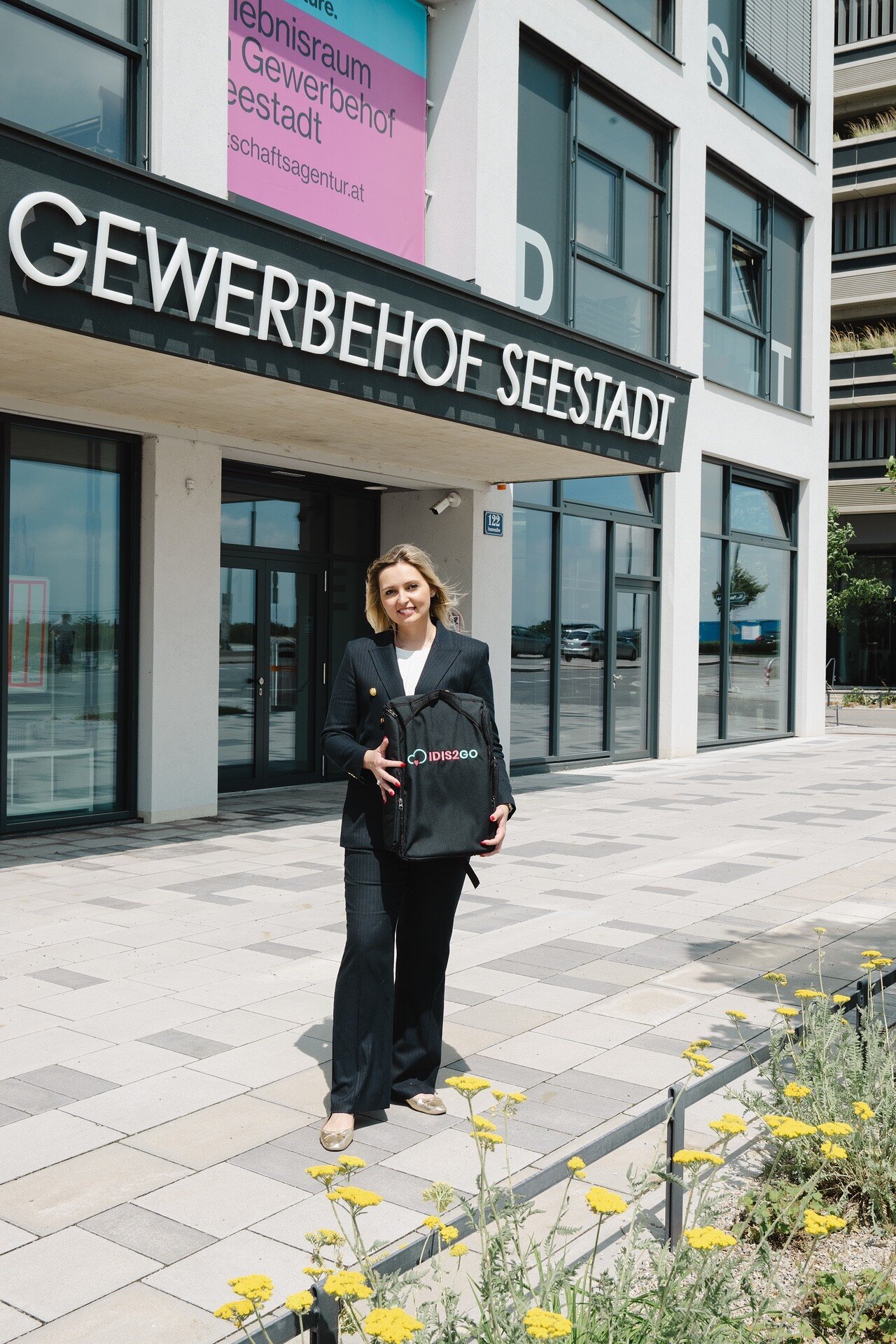
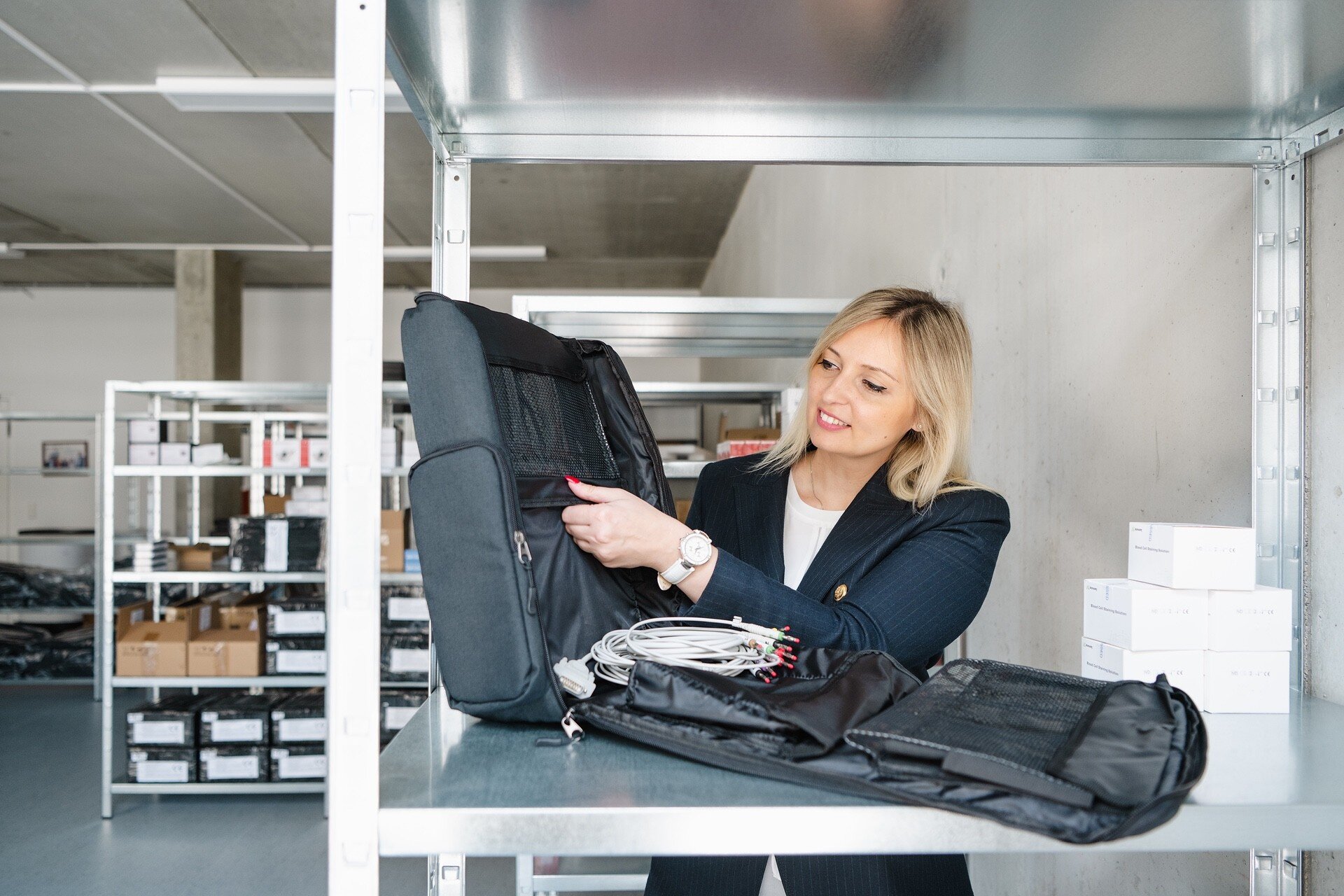
Catherine Chuchylina © Luiza Puiu
Worldwide
“As part of the ‘Dialogue with Aging’ series, we invited people to the pharmacy for an exhibition by photographer Willi Puchner, who created the impressive photo series ‘The Over-80s’,” she reports. “With a senior group, we visited actress Erni Mangold at the theater.” A pharmacy is “primarily not a place for culture, but a place for encounters,” says Schlagintweit, who admits that the pharmacy also benefits economically. “With the striking design of the Löwenapotheke, we even made it into architectural trade magazines.” ‘Never boring again’ and ‘Aspern shines’ were the headlines of two newspaper articles. As part of their cultural program ‘Denkraum Donaustadt’, hundreds of events have now been held, all dealing with health topics in connection with art projects. Schlagintweit: “My now retired husband and I are simply very interested in culture.”
The general cultural offerings in Seestadt have developed greatly over the years, probably also due to the fact that Vienna’s city center is not just around the corner. Schlagintweit herself wants to step back a little as a cultural organizer in the future: “We will continue to organize theater performances for children and families. Otherwise, I am very busy at the Seestadt Pharmacy, where I take care of accounting and marketing.” In addition, the Schlagintweit couple is already thinking about tomorrow: Recently, they visited a pharmacy where a robot is used in inventory management and electronic price labeling has been introduced. Digitalization, a future project for the Seestadt Pharmacy.
While Catherine Chuchylina’s field of activity for her medical work is the whole world, for Sylvia Schlagintweit, the microcosm of Aspern is what counts most. Her activities are not limited to children and young people. Older citizens are also a focus.

